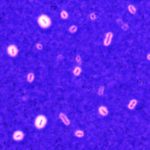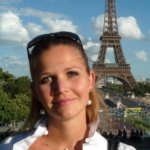Lien vers Pubmed [PMID] – 37781688
Lien vers HAL – pasteur-04225506
Lien DOI – 10.1093/femsml/uqad038
Microlife 2023 ; 4(): uqad038
Klebsiella variicola is an emergent human pathogen causing diverse infections, some of which in the urinary tract. However, little is known about the evolution and maintenance of genetic diversity in this species, the molecular mechanisms and their population dynamics. Here, we characterized the emergence of a novel rdar-like (rough and dry) morphotype which is contingent both on the genetic background and the environment. We show that mutations in either the nitrogen assimilation control gene (nac) or the type III fimbriae regulator, mrkH, suffice to generate rdar-like colonies. These morphotypes are primarily selected for the reduced inter-cellular aggregation as a result of MrkH loss-of-function which reduces type 3 fimbriae expression. Additionally, these clones also display increased growth rate and reduced biofilm formation. Direct competitions between rdar and wild type clones show that mutations in mrkH provide large fitness advantages. In artificial urine, the morphotype is under strong negative frequency-dependent selection and can socially exploit wild type strains. An exhaustive search for mrkH mutants in public databases revealed that ca 8% of natural isolates analysed had a truncated mrkH gene many of which were due to insertions of IS elements, including a reported clinical isolate with rdar morphology. These strains were rarely hypermucoid and often isolated from human, mostly from urine and blood. The decreased aggregation of these mutants could have important clinical implications as we hypothesize that such clones could better disperse within the host allowing colonisation of other body sites and potentially leading to systemic infections.



